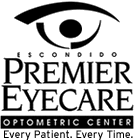
How can I keep my Eyes healthy as I get old
Getting old doesn’t have to be synonymous with vision loss. There is a lot you can do to keep your eyes and vision healthy and prevent age related eye disease and vision loss, especially if you start early. Keeping your eyes healthy and strong may require some lifestyle changes, but the good news is that these improvements will contribute to your overall health and wellness, not just your eyes.
Escondido Premier Eyecare, your local Local Eye Care Clinic in Escondido, California.
We are conveniently located at, 1299 E Pennsylvania Ave, Ste B.
Order your Contact Lenses here!.
-
Call Escondido Premier Eyecare today : 760-300-3120
-
How to make an appointment to see Dr. Karen E. Love, O.D., F.C.O.V.D., F.N.O.R.A. ? Click Here to make an Appointment Online
There are a number of ocular diseases such as glaucoma, macular degeneration, cataracts and diabetic retinopathy that primarily affect older adults, which can cause impaired vision and even blindness. Sometimes, they are caused by an accumulation of a lifetime of unhealthy habits; changing these poor habits may be the best form of prevention.
The clear, curved lens at the front of your eye may be one of the first parts of your body to show signs of age. The lens bends to focus light and form images on the retina at the back of your eye. This flexibility lets you see at different distances—up close or far away. But the lens hardens with age. The change may begin as early as your 20s, but it can come so gradually it may take decades to notice. NIH…Turning Discovery Into Health®
Here are some of the most critical lifestyle risk factors for eye disease, and what you can do to reduce your risks.
- Diet
Eating healthy is about much more than weight loss. Nutritious foods give your body the ability to fight disease and function optimally. On the other hand, what you put in your body can also cause disease, inflammation, and upset your body’s homeostasis. Choose a healthy, balanced diet: it’s never too late.Sugar, processed foods and unhealthy fats can increase your risk for eye disease and many other diseases, such as cardiovascular disease, diabetes and cancer. In contrast, colorful fruits and vegetables, particularly greens, can help to fight and prevent these same diseases. In fact, studies show that people who eat a healthy diet full of greens, healthy fats (such as Omega-3s) and proteins, and a variety of foods full of vitamins and minerals (such as antioxidants like lutein, zeaxanthin, and vitamins A and C) have reduced occurrence of heart disease, stroke, diabetes, cataracts and macular degeneration.
Try to eat a diet of at least 5-9 servings a day of fruits and vegetables rich and varied in natural color to get the most nutrients. Reduce your intake of sugar, refined grains (such as white bread and pasta) and processed foods and drinks. Eat mostly whole grains and real, natural foods as much as possible and drink plenty of water.
- Ultraviolet (UV) and Blue Light Exposure
More and more studies are showing that extended exposure to UV and blue light emissions correlate to increased incidences of eye diseases such as cataracts and macular degeneration. To avoid this, all you need is some proper eye protection. 100% UV blocking sunglasses should be worn each time you go outside (rain or shine) and, if you work on a computer or use an electronic device for at a couple of hours a day or more, it’s worthwhile investing in blue-light blocking computer glasses. There are also some filters and apps available to reduce blue-light exposure from digital devices and screens. - Smoking
We all know that smoking is bad for you, and eye disease is just another way it can have a negative impact on your health. Studies show that smoking increases the risk of dry eye syndrome, cataracts, glaucoma and macular degeneration as well as diabetic retinopathy. - Sedentary Lifestyle
Once again, what is healthy for your body, is healthy for your eyes. Studies correlate regular exercise with lower risk of age-related macular degeneration, glaucoma, cataracts and diabetic eye disease. Working a regular exercise routine into your schedule is important for your health and longevity. Being more active in your daily life can help too – walking up and down the steps in your house a few times, taking the stairs instead of an elevator or parking farther away from your destination are easy and free ways to incorporate physical activity into your everyday life. Additionally, individuals with diabetes who exercise regularly show less development of diabetic retinopathy. The recommended guidelines for diabetics (and most individuals) are a minimum of 150 minutes of exercise per week such as 30 minutes five times a week or three sessions of 50 minutes each. - Preventative Care (Regular Eye Exam)
Vision threatening eye diseases can often be caught and treated early, preventing further vision loss and sometimes even reversing damage. This is where annual comprehensive eye exams are key. You don’t want to wait until you have symptoms to get checked by your eye doctor because many eye diseases don’t present any signs until vision is lost and it is too late to fully recover. A yearly comprehensive eye exam can detect slight changes in your eye that could indicate a developing problem. Early detection can dramatically improve your chances for restored eye health and vision preservation.
When it comes to eye health, awareness and actions for prevention can have a huge impact on reducing your risks. Don’t wait until it is too late. Even small steps toward a healthier lifestyle can make a difference to your future eye health.
Call Escondido Premier Eyecare on 760-300-3120 in Escondido, California to schedule an eye exam with our optometrist.
Alternatively book an appointment online here CLICK FOR AN APPOINTMENT
Local Eye Care Clinic in Escondido, California
FOLLOW US


*Closed daily for lunch between 1pm to 2pm